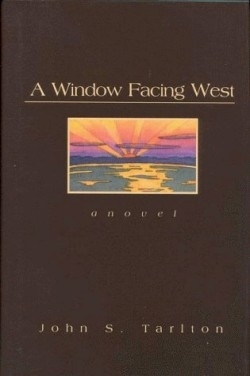A Window Facing West
Moments of great storytelling, of raw, powerful, emotionally charged and perhaps even perfect fiction are scattered through Tarlton’s first effort as a novelist.
A Window Facing West covers some familiar ground but offers unique commentary for the Baby Boom generation on mid-life crisis, middle-class selfishness, familial abandonment, blinding lust, fear of death, the philosophies of selflessness and even more.
The novella opens with Gatlin lamenting his forty-seventh birthday and feeling sorry for himself because his life in Baton Rouge, though successful and enriched, is not meeting his expectations. His wife shuns sex, his father’s memory haunts him, it’s too hot outside, there’s a mean clerk at the grocery store and the television set has just shown him a charity commercial about starving children.
Is Tarlton trying to expose self-centered middle-agers for what they are? Or does he want us to understand and empathize with the generation that once represented America’s prized subculture?
The vignettes that appear in this story are masterful. Tarlton shoves his narrator into the horrifying wing of a hospital where crack- and heroin-addicted infants, prematurely born, struggle for life. The finest character in the novel, Rick Creel, urges Gatlin to look closely at one of these tiny creatures and reevaluate his life by visiting the baby regularly.
Tarlton is also in top form when Rick and Gatlin visit a prison for felons and stage a play for the inmates that centers on Jesus questioning God for making him endure such misery and abandoning him at his most desperate hour. Sometimes flat dialogue that does not carry the plot forward and an over-emphasis on using cliches to illustrate a point flaw the novel.
Struggling between a need to let go of the past (his father’s suicide) and understand and embrace the future (his wife’s need to leave Baton Rouge), Gatlin finds solace in the great Mississippi River by helping Rick’s teenage son-in-law through his own problems.
Reviewed by
Brandon M. Stickney
Disclosure: This article is not an endorsement, but a review. The publisher of this book provided free copies of the book to have their book reviewed by a professional reviewer. No fee was paid by the publisher for this review. Foreword Reviews only recommends books that we love. Foreword Magazine, Inc. is disclosing this in accordance with the Federal Trade Commission’s 16 CFR, Part 255.

